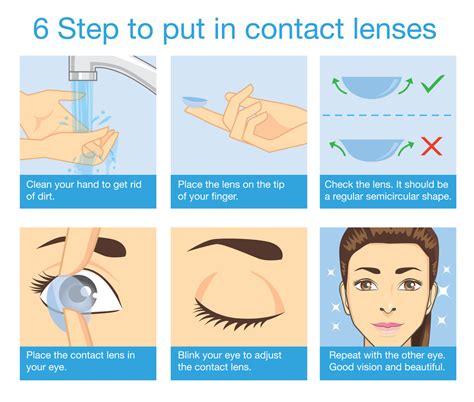Beyond the Basics: Advanced Contact Lens Tips
For many, contact lenses offer a convenient and comfortable alternative to glasses. But mastering the art of contact lens wear goes beyond simply inserting and removing them. This guide delves into advanced tips and techniques to ensure optimal comfort, vision, and eye health. We'll explore topics crucial for long-term contact lens success, addressing common concerns and providing practical advice.
How Often Should I Replace My Contact Lenses?
This is a crucial question, and the answer depends on your prescription and lens type. There's no one-size-fits-all answer. Daily disposables offer the highest level of hygiene, requiring replacement every 24 hours. However, other lenses, such as weekly, bi-weekly, or monthly disposables, require replacement according to the manufacturer's instructions. Failing to replace your lenses as directed increases the risk of infection and discomfort. Always follow your eye doctor's recommendations and the instructions provided with your lenses. Ignoring the replacement schedule can lead to serious eye health complications.
What Are the Signs of a Contact Lens Infection?
Recognizing the signs of a contact lens infection is vital for prompt treatment and preventing further complications. Symptoms can include redness, pain, excessive tearing, blurred vision, sensitivity to light (photophobia), and a feeling of something being in your eye. If you experience any of these symptoms, immediately remove your lenses and contact your eye doctor. Do not attempt to self-treat. Early intervention is crucial to minimize potential damage to your eyes.
How Can I Improve My Contact Lens Comfort?
Contact lens discomfort can stem from several factors. Proper cleaning and storage are paramount. Always use the recommended solution and follow the instructions carefully. If dryness is an issue, consider using lubricating eye drops, but avoid using them to clean your lenses. Ensure your lenses are properly fitted; an ill-fitting lens can cause significant discomfort. Regular check-ups with your eye doctor are essential to monitor your lens fit and eye health. Additionally, factors such as allergies or environmental conditions can affect comfort; managing these external factors can significantly improve your experience.
Can I Wear Contact Lenses While Swimming or in the Shower?
Generally, it's strongly advised against wearing contact lenses while swimming or showering. Water can introduce bacteria and other contaminants into your eyes, significantly increasing the risk of infection. If you must shower with your contacts in, ensure your eyes are closed as much as possible to minimize contact with water. Always remove your contact lenses before swimming, opting instead for protective goggles. Prioritizing eye health necessitates avoiding unnecessary exposure to water while wearing contact lenses.
How Do I Properly Clean and Store My Contact Lenses?
Cleaning and storage are critical for maintaining the hygiene of your contact lenses. Always wash and thoroughly dry your hands before handling your lenses. Use the cleaning solution recommended by your eye doctor and follow the instructions meticulously. Rub the lenses gently with your fingertips to remove debris and then rinse thoroughly. Store your lenses in a clean lens case filled with fresh solution after each use. Avoid reusing solution and replace the lens case regularly. Neglecting proper cleaning techniques significantly elevates the risk of infection.
What Should I Do If a Contact Lens Gets Stuck?
If a contact lens becomes stuck, remain calm. Avoid rubbing your eye vigorously, as this could cause damage. Try gently blinking several times to dislodge the lens. If it persists, use eye drops to lubricate the eye and try again. If you’re still unable to remove the lens, contact your eye doctor immediately. Attempting forceful removal can cause serious injury.
Conclusion: Prioritizing Eye Health with Contact Lenses
Wearing contact lenses successfully requires a proactive and informed approach. By following these advanced tips, you can significantly improve comfort, vision, and, most importantly, protect your eye health. Regular check-ups with your eye doctor, meticulous cleaning and storage, and prompt attention to any signs of discomfort are crucial for a positive and safe contact lens experience. Remember, your eye health is paramount.

